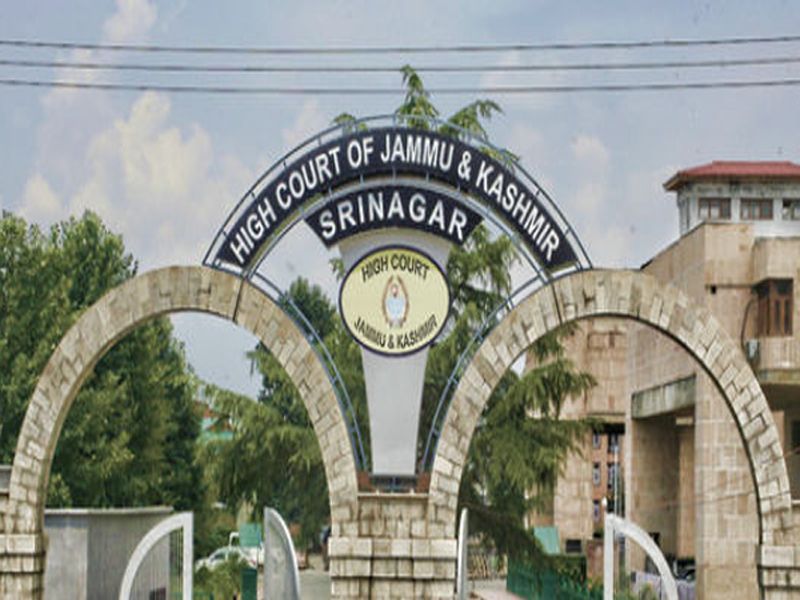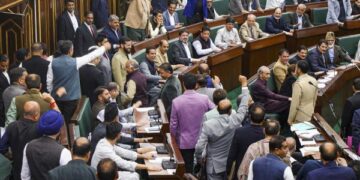Srinagar: J&K High Court today held that unauthorized absence cannot and must not amount to automatic cessation of service.
The decision came in a writ petition of an orderly working at the Principal Family Court Srinagar. The petitioner Shahnawaz Shah had been terminated from service for being un-authorisedly absent from duty.
On 20th May, 2021, Shahnawaz had attended the duties but allegedly had not locked the court premises properly. A show-cause notice was issued asking him to explain his position and his reasons for being absent from duty.
He stated he locked the premises nicely and does not know as to how the door was open. He also stated that he had developed symptoms similar to Covid-19.
Subsequently he also tendered an apology. He assured his bosses that he would not be repeating such acts again. He consequently prayed for a lenient view.
Thereafter, the Principal Judge, Family Court, Srinagar, forwarded the un-authorized absence case of the petitioner to the authorities at High Court for necessary action.
The authorities at the High Court served a charge-sheet against Shahnawaz. This was replied with a prayer seeking a liberal view and pardon from the High Court authorities.
Contrarily the authorities at the High Court issued an order of termination of the services of the employee.
He then approached the High Court where his petition was heard by a division bench comprising Justices A M Magrey and Puneet Gupta.
The bench observed that Shahnawaz, who was working on probation, had been terminated by application of Rule 21 (1) (b) of the CCA Rules of 1956 on the charges of absence from duties.
The power available with the competent authority under this Rule is only to discharge the probationer from probation in the event the performance is found not satisfactory. But this is not the case set out against the petitioner, the bench said.
“The order of termination is ex facie, stigmatic and punitive also as it is founded on the ground of alleged unauthorized absence which has been explained by the petitioner that he had developed the Covid-19 symptoms”, the bench said adding he had stayed off in order to save others from getting infected.
The bench cited the statements of the Family Court officials who said a roster of duties had been framed by the Presiding Officer for the Staff. The day the petitioner Shahnawaz had remained absent probably appeared to be his off-day in terms of the duty roster.
The duty roster of the staff was cancelled by the Presiding Officer on 21st May, 2021, itself when the petitioner was not present, the officials had stated.
The division bench observed “the petitioner was under a bona fide impression that as per the duty roster he is not supposed to attend the duty for the day in question i.e. 21st May, 2021, when he was issued the show cause notice”.
The unauthorized absence cannot and must not amount to automatic cessation of service even if the delinquent is a probationer, it said adding the course adopted by the respondents in terminating the services of the petitioner under Rule 21-1-B of the CCA Rules of 1956 is uncalled for and declared to be bad in law.
The respondents have grossly erred in law in inflicting the punishment upon the petitioner on account of alleged five days (05) unauthorized absence as the allegation is not so grave to attract the major punishment of the kind adopted by the respondents, the court said.
It said “the respondents having mechanically terminated the services of the petitioner by a stigmatic order which cannot withstand the test of law”.
Shahnawaz was so entitled to the service benefits under law and was directed to be allowed to continue in service.








